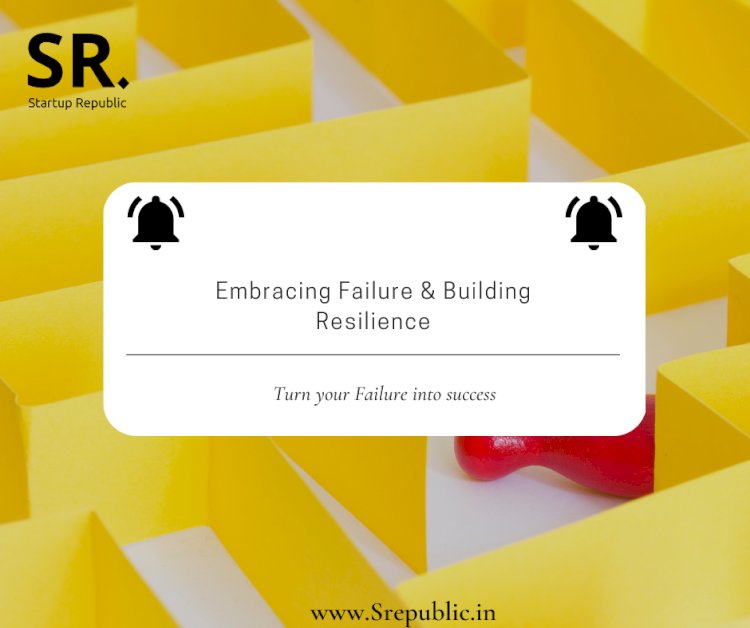The Importance of Failure and Resilience in the Entrepreneurial Journey

Introduction
Entrepreneurship is an exciting and challenging journey, but it is also fraught with risks and uncertainties. Failure is a common occurrence in the entrepreneurial journey, but it can also be an opportunity for learning and growth. Resilience is a critical trait for entrepreneurs to have, as it allows them to bounce back from failures and setbacks, and continue to pursue their goals with determination and grit. In this blog, we will explore the concept of failure and resilience in entrepreneurship and how they can be harnessed to achieve success.
Understanding Failure
Failure is an inevitable part of entrepreneurship. Despite the best-laid plans and strategies, things can still go wrong. A product may fail to resonate with customers, a marketing campaign may not generate the expected results, or a team member may not perform as expected. Failure can be a painful and demotivating experience, but it can also be a valuable opportunity for learning and growth. Successful entrepreneurs view failure as a necessary step towards success, and they use it as a catalyst for improvement and innovation.
Learning from Failure
The key to learning from failure is to reflect on what went wrong and identify the lessons that can be learned. Successful entrepreneurs are not afraid to confront their failures and mistakes, and they are willing to take responsibility for their actions. They understand that failure is an essential part of the learning process, and they use it to refine their strategies and improve their performance. By embracing failure and using it as a learning opportunity, entrepreneurs can develop the resilience they need to succeed in the long run.
Resilience in Entrepreneurship
Resilience is the ability to bounce back from setbacks, adapt to changing circumstances, and stay focused on long-term goals. It is a critical trait for entrepreneurs, who must navigate the ups and downs of the business world with grit and determination. Resilient entrepreneurs are not deterred by failure or setbacks; instead, they see them as opportunities for growth and improvement. They are adaptable, flexible, and able to pivot when circumstances require it. They also have a strong sense of purpose and a clear vision of what they want to achieve, which helps them stay focused and motivated even in challenging times.
Developing Resilience: Resilience is not a fixed trait; it can be developed and strengthened over time. There are several strategies that entrepreneurs can use to build their resilience:
-
Adopt a Growth Mindset: A growth mindset is the belief that skills and abilities can be developed through hard work and dedication. By adopting a growth mindset, entrepreneurs can view challenges and setbacks as opportunities for growth and learning.
-
Build a Support Network: Surrounding oneself with a supportive network of friends, family, and colleagues can provide emotional support and encouragement during difficult times.
-
Practice Self-Care: Taking care of one's physical and mental health is crucial for building resilience. Regular exercise, healthy eating, and mindfulness practices can all help entrepreneurs stay focused and energized.
-
Maintain a Positive Attitude: A positive attitude can help entrepreneurs stay motivated and focused, even in the face of adversity. By focusing on the positive aspects of a situation and reframing negative thoughts, entrepreneurs can maintain a resilient mindset.
Conclusion Failure and resilience are two sides of the same coin in entrepreneurship. Failure is an inevitable part of the entrepreneurial journey, but it can also be an opportunity for learning and growth. Resilience is the key to bouncing back from setbacks and pursuing long-term goals with determination and grit. By adopting a growth mindset, building a support network, practicing self-care, and maintaining a positive attitude, entrepreneurs can develop the resilience they need to succeed in the face of adversity.























